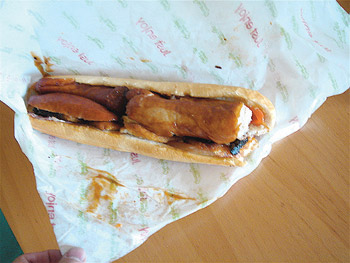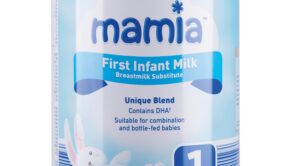An inconvenient recession

There is a view that convenience stores are better placed to withstand the downturn than other retailers. The current economic conditions will be a true test of that perception
8 December 2008
The conventional wisdom says convenience stores are less vulnerable than most to a downturn simply because shoppers are prepared to pay extra for the convenience aspect. Vincent Jennings, chief executive of the Convenience Stores and Newsagents Association (CSNA), says while this perception is true to an extent, the sector is not insulated from changing consumer spending patterns; far from it.
“The reality is that we’re all suffering very, very deeply from the uncertainty in the economy… it is the uncertainty that’s causing the difficulty. It is the people considering whether or not they really need to buy these convenience items; the sandwich six days a week or the two lattes a day.”
Tara Buckley, director general of the Retail, Grocery Dairies and Allied Trades Association (RGDATA), which represents 4,000 independent grocers in the State, agrees that the recession is starting to bite.
“Our members are saying that consumer spending habits have changed and that’s having an impact on their sales. For example, retail outlets based in towns where there was considerable construction going on but not anymore have noticed a big drop in their breakfast and lunch trade. Also, consumers are not buying as much ready-made stuff, coffee or food-to-go.”
But not everyone has been affected equally, she adds. “Retailers in busy city centres would say that not a lot has changed for them. It’s not all doom and gloom. There are people adapting their businesses and people still have to eat.”
Just as some shops are affected more than others, some shop owners are better able to cope than others.
“Shopkeepers and retailers by and large are resilient people. Those that have been around in past recessions and past hard times have a coping mechanism. The concern here would be the people who have come into the business recently, in the past seven or eight years, and have seen nothing but upward growth,” remarks Jennings.
Banks add insult to injury
A combination of factors fuelled the expansion of the convenience sector until very recently: net migration into the country driven by a massive inflow of foreign migrant workers and tens of thousands of returning Irish; the increase in disposable income due to the fired-up economy; and the booming construction sector. Not only did the ‘jumbo breakfast roll’ immortalised by Pat Shortt fill the bellies of hungry construction workers, it also filled the coffers of the fast-expanding convenience sector.
But now the economic picture has altered radically and the free-spending consumer has gone into hiding. For a convenience sector that has grown and thrived on the fact that consumers have had an ‘extra bit of cash’, this can only be bad news.
Exacerbating the situation is that fact that capital-starved banks, desperate for liquidity, are starting to cut credit lines to their retail customers. According to Buckley, this is causing great difficulties, especially for those that have borrowed heavily to set up shop and whose revenues are falling short of forecasts.
“There is a frustration with the banks that they are not showing any leniency towards small businesses. There doesn’t seem to be any flexibility about restructuring loan payments to assist a business that’s struggling in the current climate, a business that has a long-term future but just needs a bit of restructuring to get it through these couple of years,” she says.
Jennings goes further, saying that banks have an obligation not to cause “excessive pain” to their customers and to keep credit lines open.
“I believe that we as taxpayers have the right to expect that banks who have effectively been given a guarantee by our State pass this down the line in terms of the easing of credit for small and medium enterprises. We need to see them acknowledging that SMEs are the backbone of this economy. Be it at retail or manufacturing, we absolutely need this credit to survive.”
The shop owners that are most likely to feel the squeeze are those that have invested a lot of money in upgrading their outlets in recent years. In general, this has been retailers who have joined symbol groups such as Spar, Centra, Mace, Londis and Costcutter.
New start-ups most vulnerable
The expansion of the symbol group sector had been one of the success stories of the Celtic Tiger. According to the CSNA figures, an extra 1,000 convenience outlets have opened in the last 10 years, the vast majority of them being linked to a symbol group. Some of these are new-builds, others are existing outlets that are now aligned with a symbol group. In addition, retail outlets are, on average, considerably bigger than they were 10 or 20 years ago.
It stands to reason that these outlets, which generally have big overheads, are much more vulnerable to the downturn than the family businesses that own their own premises and have much lower staff costs.
The symbol groups’ business model is predicated on rapid expansion and heavy investment by their ‘independent retail partners’, the shop-owners who hitch their wagon to the symbol groups. For example, Centra’s retail partners invested some €50 million in 2007 on 44 new outlets, an average spend per start-up of over €1.1 million.
If banks choke off the credit supply to retailers, as they have with many property developers, the worst-case scenario is that a large number of newer, highly geared symbol group outlets could go to the wall.
A race to the bottom will leave casualties on all sides
Perhaps equally worrying in the current climate is the constant downward pressure on price that pushes cheaper own-brand products to the fore and squeezes margins.
A spokesperson for BWG Foods, a retail stable that includes Spar, Eurospar and Mace, notes that there has been an “upsurge” in the sale of own-brand products, which suggests that consumers have become “more price sensitive and aren’t forever loyal to big brand names”.
Like other retailers, Spar has moved with the times by introducing a large number of own-brand products in recent times and “will continue to do so,” said the spokesperson.
Such tactics may have an effect in the short term but ultimately convenience stores can’t hope to compete on price alone against the multiples and the discounters. Jennings warns that if price becomes the be-all-and-end-all and local convenience stores are forced out of business, consumers themselves will be the ultimate losers.
“Where do consumers then go? They have to travel further, to a discounter on the edge of a town which may or may not be serviced by public transport. Things that were previously convenient will no longer be convenient if you go down the route of the price is everything, and you only go somewhere because of price.”
Despite the gloomy outlook, BWG’s spokesperson insisted that the convenience sector is strong enough to withstand the downturn.
“In the current more challenging economic environment convenience continues to offer consumers ease of access, longer opening hours and a quality, lifestyle-led food and beverage offering. In addition, the convenience sector is broadening and deepening its range of value-based food products which, when taken together with the other strengths of the sector, leave it well placed to compete in these more challenging times.”



 Print
Print






Fans 0
Followers